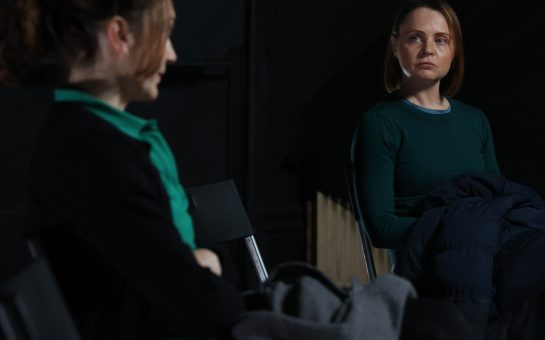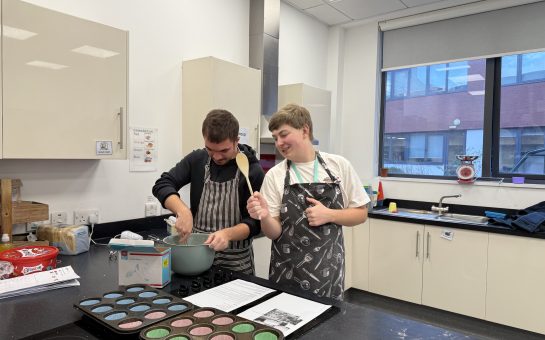To be in a league of your own is a phrase more often than not coined to highlight the exceptional work or good done by an individual.
It was undoubtedly used when Nelson Mandela took those famous steps to freedom in 1992 in the wake of South Africa’s inspiring civil rights movement.
Today we hear it when millions tune into reality programmes such as Made In Chelsea to pay homage to the stars’ enviable lifestyles.
And, more appropriately, when Luis Suarez collected his Golden Boot this week, from the warm and embracing smile of Kenny Dalglish.
As Suarez collected the award from a fellow sporting icon it would be fair to say a number of top-rated journalists present at the ceremony heard those glowing words a couple of times.
‘Genius’ or ‘what them boys could do with their feet doesn’t bare thinking about’ are a couple more of those strange but common statements heard at awards night.
But when you actually do think about it, their prowess on the ball demonstrates why it is them up on that stage and not the wine quaffing gentleman who has just strung that sentence together… I digress.
The literal meaning of ‘in a league of your own’ is appraisal or acknowledgement of exceptional work or an outstanding endeavour.
However for anyone who suffers from dyspraxia the expression has an entirely different meaning altogether, which stems from the fact that the understanding of dyspraxia being worlds apart…
For Dyspraxia Week, MM’s Jonathan Maley has been brave enough to offer a personal insight in growing up with the disorder.
Dyspraxia is seen as a form of developmental coordination disorder. Doesn’t sound quite as attractive does it?
People’s views mean growing up with dyspraxia sees so many called the ‘dummy’ or ‘thicko’ in years gone by.
That cringe worthy Bash Street Kids style of torment that millions will have faced worldwide because they tripped over a couple of times or felt under pressure to take down their notes correctly.

INSPIRATION: Sir Richard has never let his dyslexia be an obstacle
I can remember vividly occasions when in school I was overwhelmed with this feeling of being in an inferior position to my peers.
I would receive frequent glances from my primary teacher as if to say ‘what do you mean?’.
‘You’ve missed the point here Jonathan, but good effort’ would by and large capture the entirety of my end of year reports.
A portfolio which had my parents scratching their heads and asking ‘How do you get an A* in effort and yet attain a D in your sciences?’.
And the plot thickens. The general teaching style of the 90’s into the early and mid-2000’s was largely text book taught.
We even still had black boards. Today’s children would laugh in disbelief.
What this demonstrated for anyone who suffered with dyspraxia was that teaching standards were archaic, almost irrelevant, because of course if you got something wrong the first time on your test, you’re grouped, then you’re categorised.
You then feel very alone.
All your friends are high flyers. ‘He’ll be a doctor that boy’, people would say and yet of course they were never talking about me.
They were sadly part of the majority in thinking dyspraxic children and the adults they become are not in a league of their own.
But the many millions of children who did grow up under general state education in Britain and who suffered in silence would vociferously disagree.
For me, I have seen that leagues can change or at least those competing can move up one.
Granted, you can also be relegated, but what this analogy details is the fact we shouldn’t be shoe-horned into this ‘big society’ our Prime Minister has spoken of, we should make our own destiny and be proud of the person we are.
For any aspiring journalist, one poet’s wisdom has probably more often been the top line of covering letters to attain work placements than any other.
It starts ‘I served six honest serving men, all of them I knew…’ There is however another work of Rudyard Kipling’s decorated repertoire, which has always resonated deeply inside me when I hear it, ‘If you can talk with crowds and keep your virtue, Or walk with Kings nor lose the common touch!’.
It captures perfectly this idea that yes we must integrate into society and walk with those who believe they’re superior. Otherwise you’ve let the playground bullies win.
However never forget that despite your struggle to break away from being misconstrued or misunderstood, stay true to your beliefs and aspirations, the common touch.
It is this common touch that so many leading entrepreneurial figures hold on to.
Take Sir Richard Branson. He doesn’t just say words, he uses them. The man that treats the tea lady like he would the manager, there are no leagues in Branson’s thinking, only positivity.
For Sir Richard it is his thinking, for others it may be something entirely different.
I’d personally like to believe that regardless of being diagnosed with a number of learning difficulties at a time which coincided with the dreaded Year Six SATS, that I must stay positive.
People have to believe their contribution in life is as worthy as the friend up the road with the doctorate framed above the mantel piece.
Sir Richard’s own learning disorders growing up did little to deter the inner ambition which is the corporate brand of Virgin today.
He has demonstrated that if you have a tool no one else really uses go out and be that different person, be the man who’ll be prepared to fail, to put your neck on the line. One day, it will pay off.
Inset image courtesy of Jarle Naustvik, via Flickr, with thanks



